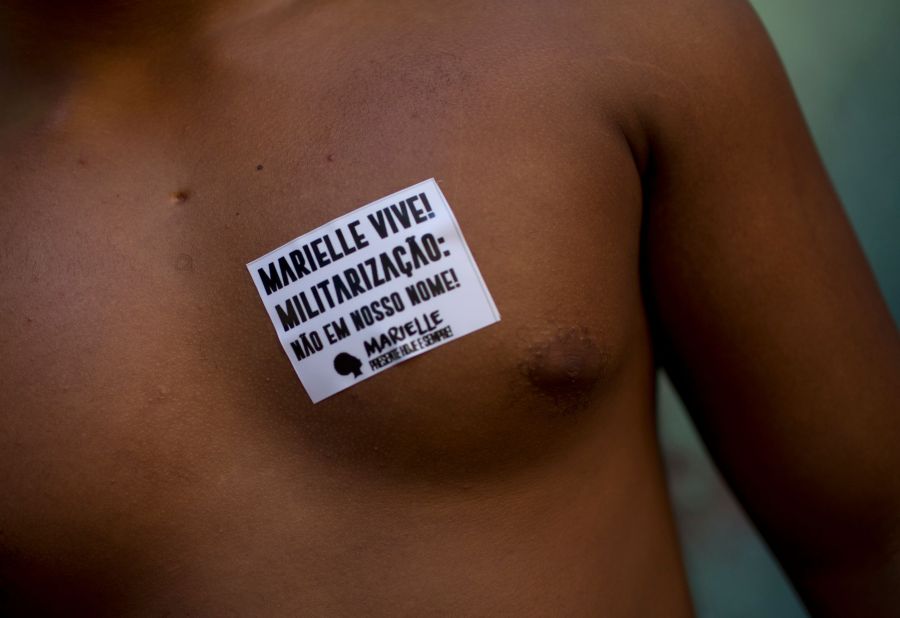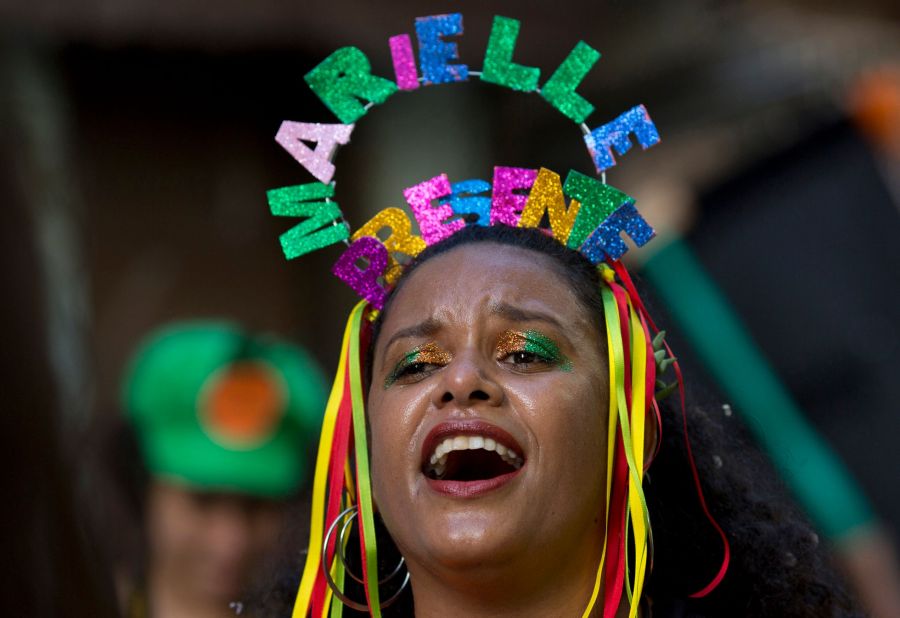Amid a conservative wave that brought far-right President Jair Bolsonaro to power, this year's Carnival in Rio will feature irreverent, in-your-face parades highlighting the role of women, blacks and indigenous people in Brazil.
The traditional "escolas" or samba dance troupes that will march along Marques de Sapucai Avenue in the so-called Sambodromo arena also face another year of budgetary restraints imposed by city officials.
The other side of history
The songs of Mangueira, one of the city's most traditional troupes and winner of the samba competition in 2016, aim to spread "the history that history does not tell" - that of grassroots heroes who fought losing battles and do not show up in in children's school books.
"The traditional narrative chose its heroes, picked its facts, erected monuments, named streets and avenues and that is how we ended up with those who won. Indians, blacks, mulatos and poor people did not end up as statues. Their names are not in the school books," Mangueira artistic director Leandro Vieira said in explaining the plot of this year's performance by his company.
Mangueira is dusting off little-known names such as that of 17th century black female warrior Dandara, or the Cariri, who were indigenous rebels. The troupe also argues that Portugal's colonization of what is now Brazil was more an invasion than a discovery.
"We show the courage of black people by resurrecting very important names, mainly those of black women, but also indigenous people, showing who the real trailblazers were, the builders of the history of Brazil," said Evelyn Bastos, the troupe's drum-playing queen figure, during its final rehearsal in the Mangueira neighborhood near the iconic Maracana football stadium.
The troupe also honors black city councillor Marielle Franco, a respected and outspoken defender of human rights in the slums of Rio, who was shot dead in March of last year. She grew up in one of those so-called favelas.
"Marielle is not a political and partisan figure. She is a favela girl who beat the odds, went to school and defended human rights. She is an example for women, mainly for our girls, who think that because they are black or because of where they live they cannot have opportunities," said Bastos.
Franco's companion, Monica Benicio, will march in the Mangueira samba parade.

High fashion samba with Gaultier
Portela, another big-name troupe at the Rio Carnival, will pay homage this year to a singer named Clara Nunes, a huge star in the 1970s and the first performer in that era to defend publicly - in her songs, attire and commentary - the country's Afro-Brazilian religions.
Today in Brazil "there are people who suffer discrimination because of the color of their skin, their religion, their sexual preference," said Portela spokesman Raphael Perucci. "At a time when tension is high, a tribute to Clara Nunes highlighting her commitment to religious tolerance is very important."
Meanwhile the nearly century-old Madureira samba company is putting the finishing touches on its costumes and floats in a cavernous warehouse and keeping everything secret. The clothes are being designed by France's Jean-Paul Gaultier and Portela creative director Rosa Magalhaes.
Gaultier has put his name on two outfits – one for men, one for women – that 120 performers in one section of the Portela procession will wear as they depict a painting called “Carnival in Madureira" by the modernist Brazilian painter Tarsila do Amaral.

Budgetary cuts
Since a former evangelical pastor, Marcelo Crivella, became mayor of Rio in 2016, city funding for the samba troupes has been cut in half. And with five days to go until Carnival starts, these companies have received only half of the 500,000 reales (around US$130,000) earmarked for each of them, says Perucci.
Crivella, who has made clear he is not keen on this grand orgy of samba, says the festival needs to be gradually weaned from government money and rely instead on private financing.
But budgetary cuts do not discourage Rio’s traditional samba groups, which are nearly 100 years old. Brazil has just emerged from a punishing economic crisis and an exhausting electoral process, and Carnival remains a sacred ritual of collective catharsis.
"These parades are like the World Cup. We empathise with people enduring tragedy. Carnival cannot ignore reality. In the end, the people in the parades are workers, and parents with kids but once a year they all want to have fun," said Perucci.
- TIMES/AFP



















Comments